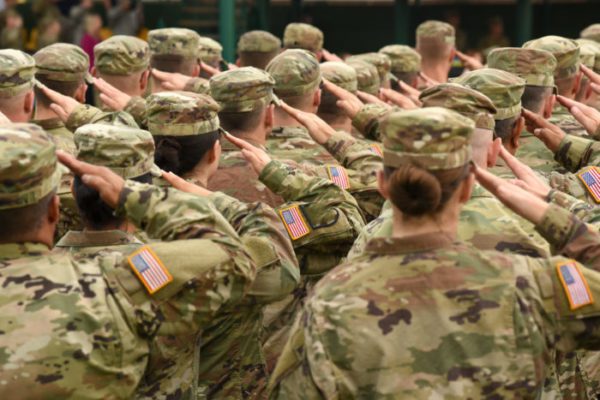Clinical research is working every day to provide a better homecoming filled with health and happiness to our veterans.
National Medal of Honor Day
Today, March 25, is a Sunday. This day recognizes the 3,517 individuals that have “distinguished themselves through conspicuous gallantry and intrepidity at the risk of life above and beyond the call of duty.”
The Medal of Honor is the highest award given to members of the United States Armed Forces. Recipients display the utmost bravery and sacrifice for their country and fellow brothers and sisters in uniform. These service members are recognized for their acts of valor while:
Engaged in action against an enemy of the United States;
While engaged in military operations involving conflict with an opposing foreign force; or
While serving with friendly foreign forces engaged in an armed conflict against an opposing armed force in which the United States is not a belligerent party.
Unfortunately, the majority of award recipients do not see the day where the U.S. President bestows the medal around their neck because they give the ultimate sacrifice in the line of duty, or die years before their heroic acts are recognized.
It is the reality that most Medal of Honor families have to accept the award without their loved one by their side. They are left with a star shaped medal and a folded flag to place on their mantle, knowing their loved one is forever memorialized as a hero of all.
Today, 71 Medal of Honor recipients live.
However, live is a subjective word.
Many award winners have seen the worst images, heard the loudest cries, smelt the foulest odors, tasted the warmest blood, and touched the most dangerous ground.
The effects of war are felt upon all service members, not only Medal of Honor recipients. Many veterans and active duty members are faced with challenges because of their physical scars, but it is often the mental injuries that terrorize normalcy.
Nightmares Follow You Home
Post-Traumatic Stress Disorder (PTSD) is the one of the greatest enemies military members and their families face after their tours end.
About 30 percent of Vietnam veterans suffer from PTSD, while roughly 20 percent of veterans from the War on Terror have the illness.
For comparison, only 8 percent of the civilian population suffers from the same disorder.
The mental toll taken on service members who see combat is unmeasurably damaging. The brain is overloaded with straining memories causing present agony.
Former Army Sgt. Kyle J. White was awarded the Medal of Honor in 2014 for his actions seven years earlier while serving in Afghanistan.
White and his company were ambushed while moving through a valley. After unloading his first magazine, White was knocked unconscious by a nearby RPG blast. After regaining consciousness, White was able to radio for help while providing aid to his wounded comrades in the midst of Taliban fire.
Since leaving the military, White has been vocal about his diagnosis with PTSD, and the struggles that have come with it.
In an interview White is quoted in saying, “And then, you know, just the kind of the flashes here and there of one minute you’re doing something and you’re thinking and [then] you’re right back there at 9 November [in Afghanistan] …”
In October of 2009, former Army Staff Sgt. Ty Carter was caught in a firefight at an American outpost in Afghanistan. In a battle where American soldiers were vastly outnumbered, Carter was able to return enemy fire, provide needed ammunition, medical care to the wounded, and radio for help while crossing open territory multiple times.
Carter’s actions earned him the Medal of Honor in 2013, but he has continued to live with the repercussions of PTSD stemming from the combat zone.
“Things become heightened around you,” Carter said. “The noises become too loud, the lights are too bright, the edges of the tables and walls are too sharp, and everything seems like it’s dangerous or something is trying to hurt you or get you. You see people who would normally seem harmless, they turn into the biggest, meanest bad guy there is, and all you want to do is find ways to defend yourself.”
These flashes of terror start to build.
And build.
And build.
Until these service members are able to receive the help they deserve, or they end their deployment in this world prematurely.
Nearly 39 out of every 100,000 U.S. Armed Forces veterans commit suicide. That’s roughly 20 men and women taking their life every day, because they decided to defend ours.
Treatment for PTSD is limited, and obviously not benefiting enough patients who suffer from the disorder. Options currently include, psychotherapy and SSRIs/SNRI’s, also known as antidepressants.
While some of these treatment solutions may work for some, more options and better research needs to be conducted. That starts with clinical research.
A Future with Better Care
The evolution of science and medicine cannot be advanced without the freedom provided by those who lay their life down for people they have never met.
So it is our duty, as a community, to ensure that beneficial research is done in finding treatment plans to work for the 20 veterans that decide today will be their last day on Earth.
The benefits of clinical research in the form of drug approvals and treatment options doesn’t end there for service members. This summer, Clinical Research Fastrack is expected to receive VA funding for those men and women who have bravely served their country, and now desire to protect their fellow man in a different battleground.
On this Medal of Honor Day, we would like to say thank you to all our servicemen and women who have made infinite sacrifices in the name of freedom.
We together are working towards a better future in medicine for you.

